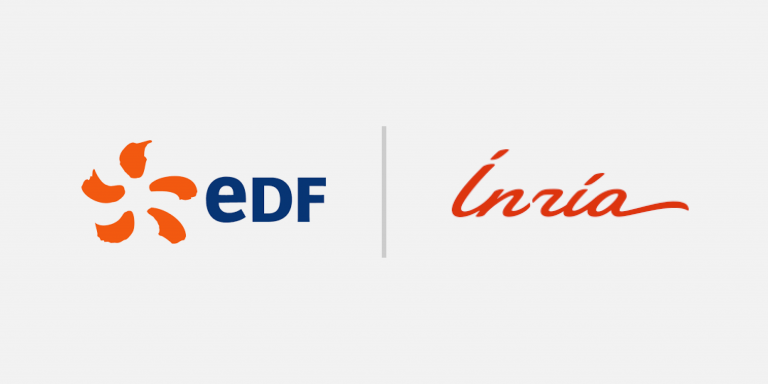
The EDF Group and INRIA, the national research institute for digital science and technology, signed an agreement in 2016 that led them to collaborate on some 30 projects. It was at the VivaTech 2022 trade show that they announced their intention to strengthen their scientific and technological partnership. While certain topics such as scientific computing, imaging and optimization have been the focus of various collaborations, and digital simulation is currently the subject of the joint IDEFIX project team launched in 2021, new topics such as artificial intelligence, cybersecurity or quantum computing are being added to this strategic partnership.
The EDF Group is an integrated energy company, active in all businesses: generation, transmission, distribution, trading, energy sales and energy services. As the world leader in low-carbon energies, with 90% decarbonized electricity, it has developed a diversified production mix based mainly on nuclear and renewable energies, including hydropower. Its mission is to build a CO2-neutral energy future that reconciles preservation of the planet, well-being and development, thanks to electricity and innovative solutions and services.
The Group relies daily on strong R&D to improve its performance in all its activities and to prepare for the future by working on breakthrough technologies. EDF’s R&D covers all the businesses and activities of the energy sector, which is why it also carries out research for external academic and industrial clients.
The EDF-INRIA partnership
EDF R&D and Inria have been working together since 2016 to meet the challenges of the energy transition, which has already resulted in more than thirty joint projects.
The two players renewed their partnership at the Viva Technology trade show and identified new research topics covering a wide range of digital-related issues:
- To be at the forefront of mathematical optimization techniques to address major operational issues in the organization and management of industrial assets of the electrical system such as energy management, scheduling, etc.
- Organize and manage the electrical systems of tomorrow.
- Master the best simulation techniques (physical, AI…) and data management.
- Design and implement efficient digital twins.
- Open up new technological opportunities through the hybridization of AI and simulation.
- Anticipate and qualify tomorrow’s computing resources, in particular quantum computing.
- Integrate AI technologies, while ensuring sober, controlled and responsible use of these technologies.
- Increasing the resilience of energy systems in terms of cyber security.
Bernard Salha, Director of R&D at EDF, said:
“The renewal of our partnership with this leading national research institute is part of a well-established, trust-based, long-term collaboration.”
Bruno Sportisse, Chairman and CEO of Inria, said:
“This partnership with EDF, a major French industrial player for our energy sovereignty, is key for Inria. It is in line with our proactive policy of impact on the French industrial fabric.
IDEFIX: the first joint EDF-INRIA project team
IDEFIX, the first joint project team in this partnership, was created in 2021 and brings together scientists from the Inria Center in Saclay, the Institut Polytechnique de Paris (IP Paris) and scientists from EDF R&D.
It is composed of four Inria researchers, four EDF researchers and a research engineer from IP Paris, expert in software development for the simulation of sound phenomena and in HPC computing. It is co-directed by Houssem Haddar, Inria Research Director, and Lorenzo Audibert, whose thesis he supervised, currently R&D project manager at EDF.
The IDEFIX project-team is working on numerous applications of X-ray, radar (electromagnetic) and sonar (ultrasonic) imaging. The research focuses, among others, on biomedical imaging, sound guidance, sound modeling in virtual reality and composite materials modeling.
Houssem Haddar stated:
“EDF is faced with a very wide variety of field problems (on dams, power plants, heat exchangers or alternators…), which are all case studies that help us improve and broaden the spectrum of our mathematical and numerical methods aimed at solving complex and difficult inverse problems.”
Currently, IDEFIX researchers are focusing on everything from crack detection to measuring changes in physical properties, such as moisture or chemical reactions. They also plan to look at a number of problems specific to EDF, which could be studied in the future with comparable techniques, such as the modeling of dam foundations or the wear tests of certain metal components.
Translated from l’IA, La cybersécurité et le quantique, nouvelles thématiques du partenariat EDF-INRIA qui vise à accélérer la transition énergétique









